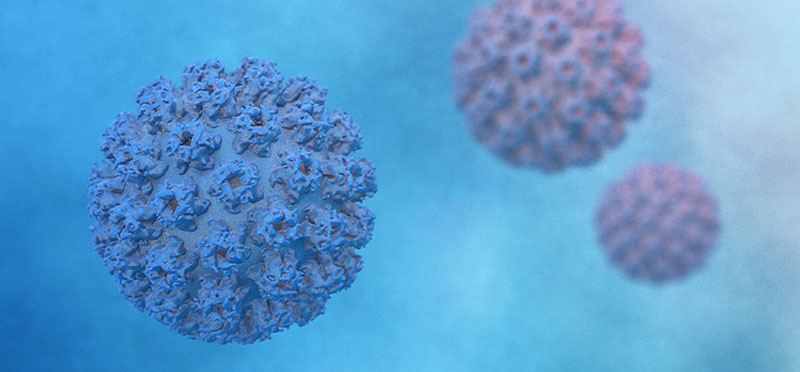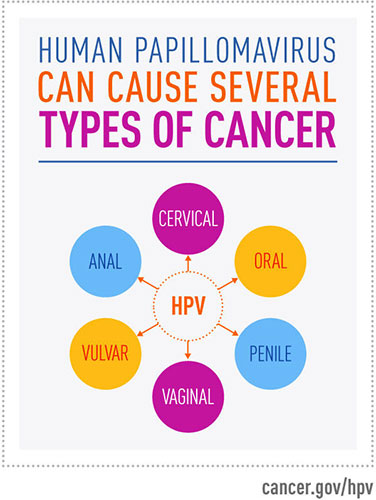Rogel Cancer Center joins top cancer centers in call to get cancer-preventing HPV vaccination back on track
Media contact: Nicole Fawcett, 734-764-2220 | Patients may contact Cancer AnswerLine™, 800-865-1125
The COVID-19 pandemic has interrupted delivery of key health services for children and adolescents, including HPV vaccination for cancer prevention

ANN ARBOR, Michigan — The University of Michigan Rogel Cancer Center has partnered with 71 other National Cancer Institute-designated cancer centers and leading cancer organizations to issue a joint statement urging the nation’s physicians, parents and young adults to get back on track with the human papillomavirus, or HPV, vaccination.
Dramatic drops in annual well visits and immunizations during the COVID-19 pandemic have caused a significant vaccination gap and lag in vital preventive services among U.S. children and adolescents—especially for the HPV vaccine.
“The COVID-19 pandemic has derailed cancer screening and prevention efforts, including HPV vaccination. It’s critical to resume HPV vaccination to continue reducing the burden of cancer and to improve quality of life for people at risk,” says Eric Fearon, M.D., Ph.D., director of the Rogel Cancer Center.
Nearly 80 million Americans – 1 out of every 4 people – are infected with HPV, a virus that causes several types of cancers. Of those millions, more than 36,000 will be diagnosed with an HPV-related cancer this year.
Despite those staggering figures and the availability of a vaccine to prevent HPV infections, HPV vaccination rates remain significantly lower than other recommended adolescent vaccines in the U.S. Even before the COVID-19 pandemic, HPV vaccination rates lagged far behind other vaccines and other countries’ HPV vaccination rates.
According to 2019 data from the Centers for Disease Control, slightly more than half (54%) of adolescents were up to date on the HPV vaccine. Those numbers have declined dangerously since the pandemic:
- Early in the pandemic, HPV vaccination rates among adolescents fell by 75%, resulting in a large cohort of unvaccinated children.
- Since March 2020, an estimated one million doses of HPV vaccine have been missed by adolescents with public insurance — a decline of 21% over pre-pandemic levels.
In addition to the urgency caused by the pandemic, Rogel researchers recently found that few young adult males are receiving the HPV vaccine: just 16% of men age 18 to 21 had gotten at least one dose, compared to 42% of women in the same age bracket.

“A lot of people, both clinicians and patients, are not aware that this vaccine is actually a cancer-prevention vaccine for both men and women,” says Michelle M. Chen, M.D., a clinical lecturer of otolaryngology-head and neck surgery at Michigan Medicine and first author of the JAMA study. “HPV-associated oropharyngeal cancer can impact anyone — and there’s no good screening for it, which makes vaccination even more important.”
The U.S. has recommended routine HPV vaccination for females since 2006, and for males since 2011. The CDC’s Advisory Committee on Immunization Practices recommends two doses of the vaccine at 11 or 12 years old, but Americans can still benefit from the HPV vaccine if they receive it later, as long as they get three doses.
NCI cancer centers strongly encourage parents to vaccinate their adolescents as soon as possible. The CDC recently authorized COVID-19 vaccination for 12-15-year-old children allowing for missed doses of routinely recommended vaccines, including HPV, to be administered at the same time. NCI cancer centers strongly urge action by health care systems and health care providers to identify and contact adolescents due for vaccinations and to use every opportunity to encourage and complete vaccination.
“Some HPV infections can be reduced by HPV vaccination. Primary HPV testing is now approved as the best screening method for cervical cancer for women,” says Diane Harper, M.D., M.P.H., M.S., professor of family medicine and obstetrics and gynecology at Michigan Medicine and an internationally known scientific expert on HPV diseases. “Now is the time to catch up on missed doses of HPV vaccine!”
This is the third time that all NCI-designated cancer centers have come together to issue a national call to action. All 71 cancer centers unanimously share the goal of sending a powerful message to parents, adolescents and health care providers about the importance of HPV vaccination for the elimination of HPV-related cancers.
Resources:
NCI-Designated Cancer Centers Call for Urgent Action to Get HPV Vaccination Back on Track [pdf]
Learn more about HPV from Michigan Medicine experts
Watch: Why men should get the HPV vaccination
COVID-19 and cancer screenings
Questions? Call the Michigan Medicine Cancer AnswerLine™, 800-865-1125.
